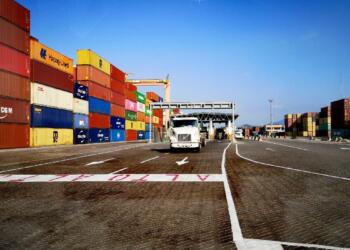
Elim Luviano Heredia will chair the Transport Commission of the Confederation of Industrial Chambers (Concamin) for the 2024-2025 period, marking the first time a transportation service provider is at the helm of this portfolio.
“In previous presidencies, we have worked on a permanent sectoral agenda, and while there are transversal issues, it is clear that we must work on an industrial agenda that addresses the issues we tackle together,” Elim Luviano, who is also the Executive Director of the National Chamber of Passenger and Tourism Transportation (Canapat), described in an interview with T21.
One of the evident challenges is defining the issues and presenting them to the members of the upcoming federal administration. “We must identify the areas where service providers and users have converging interests, but we also need to consider the challenges of various industries. Our president, Alejandro Malagón, has indicated that we should create a general agenda that prioritizes the sector’s progress,” he highlighted.
One of the objectives of the former head of the General Directorate of Federal Autotransport (DGAF) as head of the Transport Commission is to prioritize dialogue at all levels of the Executive, but also the Legislative, to address the situational challenges of the government change, as well as trends such as nearshoring and how to leverage them in various industries. “For example, strengthening infrastructure to meet the demands of the situation,” Luviano Heredia emphasized.

For the executive, the goal of being close to the new officials and legislators is to present a sector diagnosis based on the experiences of daily operators, while also leveraging factors such as the Concamin Intelligence Center to ensure that decision-making is accurate and translates into greater industrial competitiveness and, consequently, national competitiveness.
Thus, various elements have been identified, such as the reorganization of passenger transportation, dynamic weighing for freight transportation, and the strengthening of customs to expedite goods at ports and borders, benefiting maritime and rail transport. “There are countless studies and proposals on the sector’s diagnosis that should be utilized and applied,” warned Elim Luviano.
Looking ahead, Luviano Heredia is clear that, just like his tenure in the Public Safety and Crime Prevention Commission, one of the legacies he aims to leave is fostering closer relationships with regulators. He wants the importance of the industrial sector and service providers to be recognized, “to be seen as allies, to achieve the mindset changes needed to face the challenges we have as a country,” asserted Elim Luviano.
Comment and follow us on X: @DidierRT / @GrupoT21















